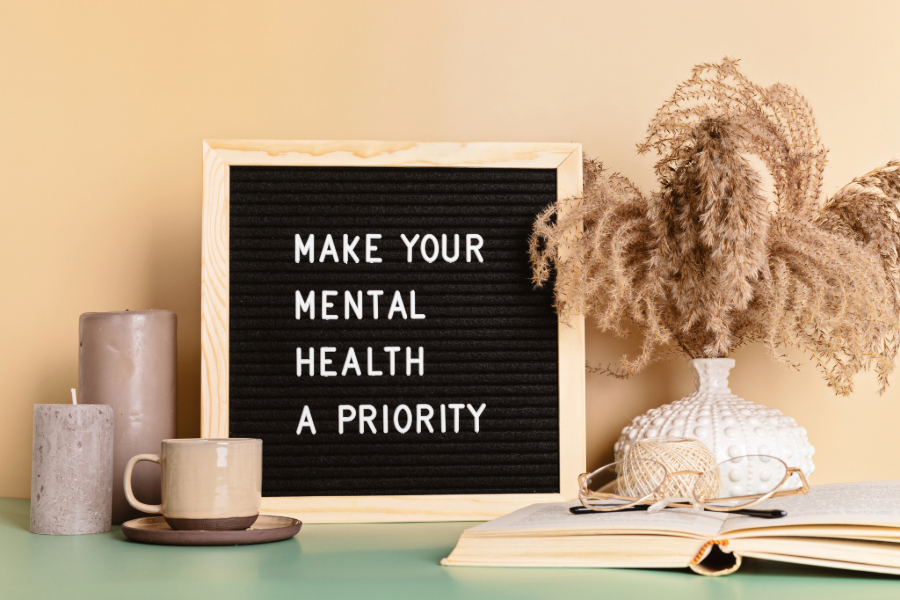How oral health affects your mental health
Posted on April 3, 2025 in Healthy You

Many people don’t realize that oral health and mental health are connected. Conditions like depression and anxiety can harm your oral health, and in turn, poor oral health can contribute to mental health challenges. Studies have shown that people with mental health illnesses have poorer oral health than those who don’t, so understanding this relationship can improve the health of your mind and your mouth.1
How the mind affects the mouth
Two common mental health illnesses — depression and anxiety — can make it difficult to keep up with daily dental hygiene. People struggling with anxiety and depression often feel extreme tiredness and a lack of motivation to do even basic tasks, which can make brushing and flossing feel overwhelming. When you avoid daily brushing and flossing, it can increase your chances of developing cavities and gum disease.
Mental health conditions can also encourage habits that harm oral health, such as smoking, drinking alcohol and eating a diet high in sugary foods and drinks. Some people with anxiety may also grind their teeth, which can cause jaw pain, headaches and tooth damage.
Certain medications used to treat mental health disorders may have side effects that impact oral health. For example, some antidepressants and anxiety medications can cause dry mouth, which lowers saliva production in your mouth. Since saliva helps wash away bacteria and balance acids in your mouth, not having enough saliva can raise your risk of cavities and gum disease.
How poor oral health harms mental health
Just as mental health can influence oral health, poor oral health can negatively affect your mental state. Untreated dental problems can lead to chronic pain, infections and difficulty eating — all of which can cause stress, anxiety and depression.
Your teeth are also important to your confidence and self-esteem. If you have dental problems that lead to tooth loss or yellowed teeth, you may feel a lot of negative emotions about your smile and appearance. This can cause embarrassment or even social anxiety, in extreme cases.
Tips for protecting your mouth and mind
- Keep up with at-home dental hygiene: Even on tough days, try to brush twice daily and floss once a day. Being consistent with your daily dental care goes a long way toward achieving good oral health.
- Stay hydrated: Drinking plenty of water is essential for total health. It specifically helps your oral health by preventing dry mouth and keeping your teeth healthy.
- Eat a healthful diet: Eating nutritious foods can support both your mental and oral health.
- Seek professional support: Having a professional support team, including a dentist and mental health professional, is important. Twice yearly dental visits can help find oral health issues before they worsen. And talking to a mental health professional can help you manage anxiety and depression.
- Find ways to lessen stress: Meditation, exercise and deep breathing can reduce stress, which not only can help ease anxiety but may also prevent teeth grinding.
Iowa resources for mental health support
If you or a loved one is struggling with mental health challenges, help is available. Call the National Suicide Prevention Lifeline by dialing 988 if you are experiencing a mental health crisis. Qualified professionals are available 24/7 for support.
The National Alliance on Mental Illness (NAMI) Iowa also provides resources for people experiencing a mental health crisis. Visit NAMI Iowa’s crisis info page for information on local crisis hotlines, mental health services and support groups here in Iowa.
Protecting your mental health is just as important as taking care of your oral health. By recognizing their connection, you’re taking proactive steps to improve both.
REFERENCE:
1 National Library of Medicine
SOURCES:
American Psychiatric Association
Oral Health Foundation